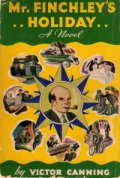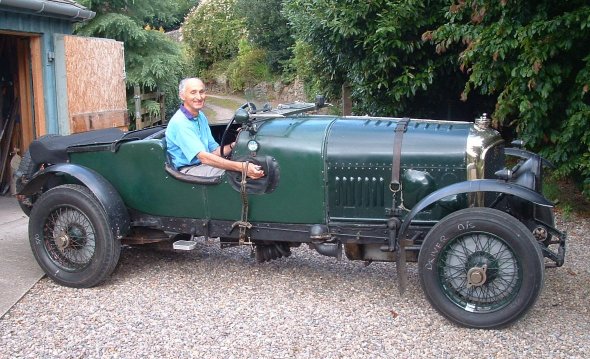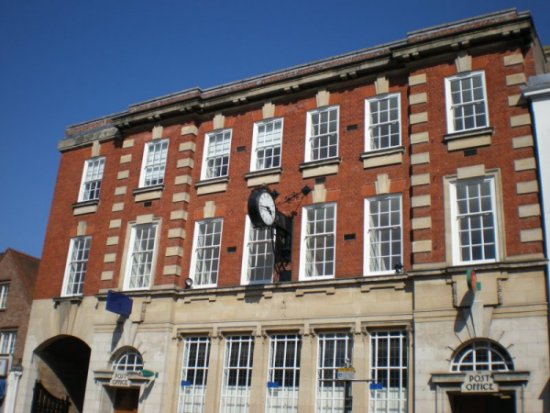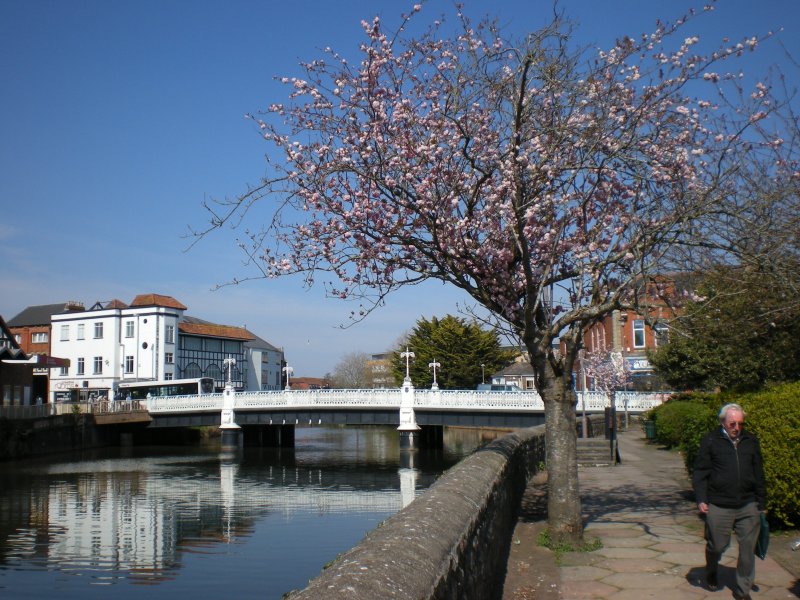


 First edition 1934 |
 US first edition 1935 |
 1941 Cheap edition |
 Hodder paperback 1954 |
 Uniform edition 1970 |
 Pan paperback 1972 |
 Mr. Finchley Companion |
|
Publishing historyThis was Canning's first published novel. Hodder and Stoughton paid an advance of £50, on the strength of which Canning gave up his clerical job and started writing full time. The first edition of 7,700 which cost 7/6 appeared in July 1934 and sold out within a month, and there were three reprints in the first year. Reynal and Hitchcock brought out an American edition in 1935 under the title Mr. Finchley's Holiday. There was a cheap edition at 4/- in 1936. Altogether there were 12 hardback reprints by 1942, a paperback edition in that year which was mostly destroyed by a bomb falling on the publishers' warehouse, and after the war several new paperback editions. Canning said he had earned £30,000 from the book, but it is not clear if he is including any post-war editions in this calculation. In any case it was a large sum of money for the time and justified his leaving his job. There were two postwar paperbacks and a hardcover release in the Uniform Edition created when Canning changed publishers from Hodder to Heinemann. There has also been a large-print edition intended mainly for libraries published by Magna Print in 2010. And now in 2019 comes the new edition from Farrago. My Companion to the three Mr. Finchley books is available from Lulu.com, and includes a full biography and background material, along with an index of characters, locations and themes. This book was broadcast as a serial on BBC radio Woman's Hour, read by Dennis McCarthy, in twelve daily episodes beginning 19 September 1960 but, unlike its two sequels, has not been dramatised for radio. I have recorded it as an audiobook for Farrago. According to Jean Tearle, Canning's sister, the character of Mr. Finchley is partly based on Canning's father, who was an energetic walker and a fund of stories about encounters with gypsies and tramps. An early notebook has survived which shows that Canning originally called his character "Mr. Pitcheley" and that the key incident triggering the book was the encounter with the escaped lunatic on Dartmoor in Chapter 21, which may have related to something his father told him. Canning admitted to being influenced by J.B.Priestley's The Good Companions and another possible influence is H.G.Wells's The History of Mr Polly. There is also a debt to Dickens's The Pickwick papers which established the genre. Jamie Sturgeon unearthed the following paragraph from the Lynn Advertiser of 3 August 1934. Canning was living in March, Cambridgeshire at the time. This was not quite his first review but must have pleased him. 
|

Mr. Finchley's route |

A 1928 4½ litre Bentley of the same vintage as the one in which Mr Finchley is kidnapped (courtesy Johnny Fry) |
 Old Taunton almshouses close to where Mr Finchley stayed |
 The Post Office from which Mr. Finchley posted his money. |
 Taunton Bridge |
 Somerset County Cricket Ground in Taunton |
|
Blagdon Lake, where Mr Finchley went swimming. |
Nowadays swimming is discouraged in Blagdon Lake. |
In Blagdon village; did Mr Finchley buy his bicycle here? |